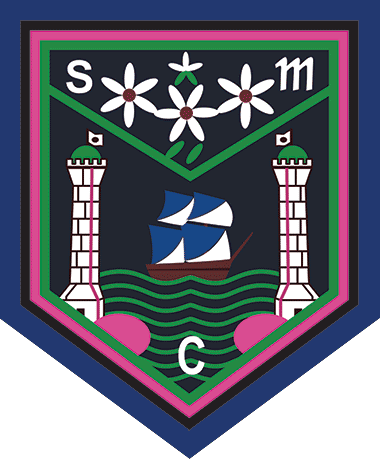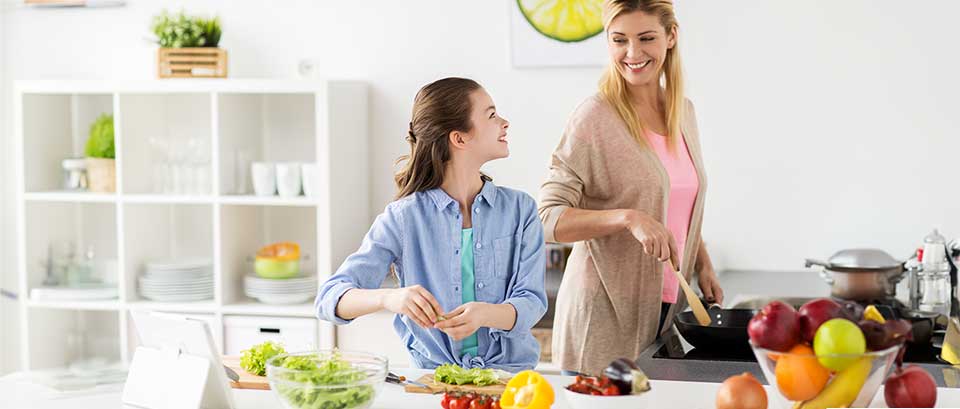When we hear the term, ‘Home Economics’ most of us think about cooking and food. However, Home Economics is about much more than food. Home Economics combines aspects of science, nutrition, cooking, learning to be efficient, and finance. Students learn about the inter-relationships between: diet, health, family, home, choice and the efficient management of resources. The subject has many links with Business studies and Science as well so this may benefit students who opt for these subjects.
At Scoil Mhuire Cork our Home Economics room is buzzing all year long with Learning about Nutrition and various elements as listed below, practical cookery, bake sales, making textiles items such as scrunchies and bags along with some jewellery making as well!
Our goal is to inform our students about how important not just diet and nutrition are but also how up-cycling, recycling and living sustainably are important to them, their families, communities and their environment. See our comprehensive subject guide below for more information.
Topics Covered
- What’s really in the food we eat every day?
- How to plan and cook nutritious and economical meals
- How to choose the best food for themselves and their family
- The importance of good nutrition and health
- The role of the consumer in modern eating patterns
- Using money – how to spend it wisely, how to save it, and consumer rights
- Your home – about design in the home, safety and hygiene
- Design and craftwork, child development, textiles
- Home Economics delivers vital skills that enable students to lead effective lives as individuals and family members as well as members of the wider community.
Skills Developed
- To use a variety of methods to develop cognitive skill such as discovery – learning and problem solving
- To demonstrate a range of practical skills
- To obtain and retrieve information from various sources
- To use certain effective skills such as creativity, imagination
- To record information accurately
- To interpret data
Possible career pathways
Home Economics will prepare students for a consumer-oriented society and provide a learning foundation for a wide range of careers in areas such as: the food industry, healthcare, hospitality and tourism.
and many more.
How is Junior Certificate Home Economics Examined?
In Junior Certificate Home Economics students will be examined in three ways:
1.) Practical Cookery Examination – 50%. Students complete a one and a half hour practical cookery exam, which involves preparing and cooking food
2.) Written Examination – Written paper 50%. This is a common level paper. The exam duration is 1 hour, 30 minutes. it covers resource management, food and nutrition and textile and craft.
There are 2 CBA’s to be completed in Junior Cycle HE.
CBA 1 which is run from after October midterm to February of second year.
CBA 2 is a two-Week duration run directly after Christmas of Third year.
How is Leaving Certificate Home Economics Scientific & Social Examined?
Leaving certificate Home Economics is examined in two ways:
1.) Practical Course Work Journal
Students are required to complete five mandatory practical assignments which involve a large amount of research. They document each assignment in a Food Studies Practical Coursework Journal, which is worth 20% of their final examination. Different assignments are issued each year by the State Examinations Commission.
2.) Written Examination
Students complete a two and a half hour written examination which is worth 80% of their grade.

